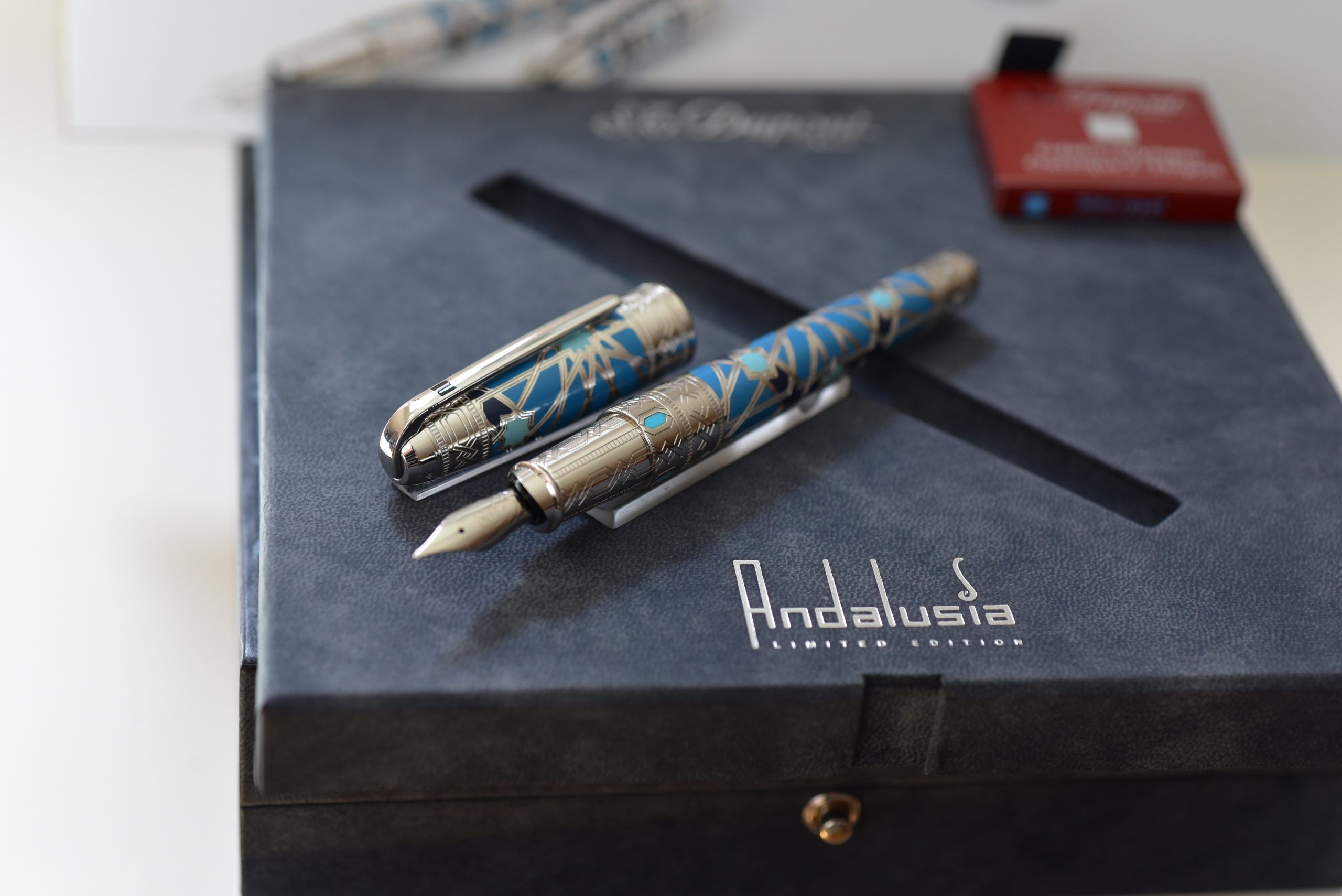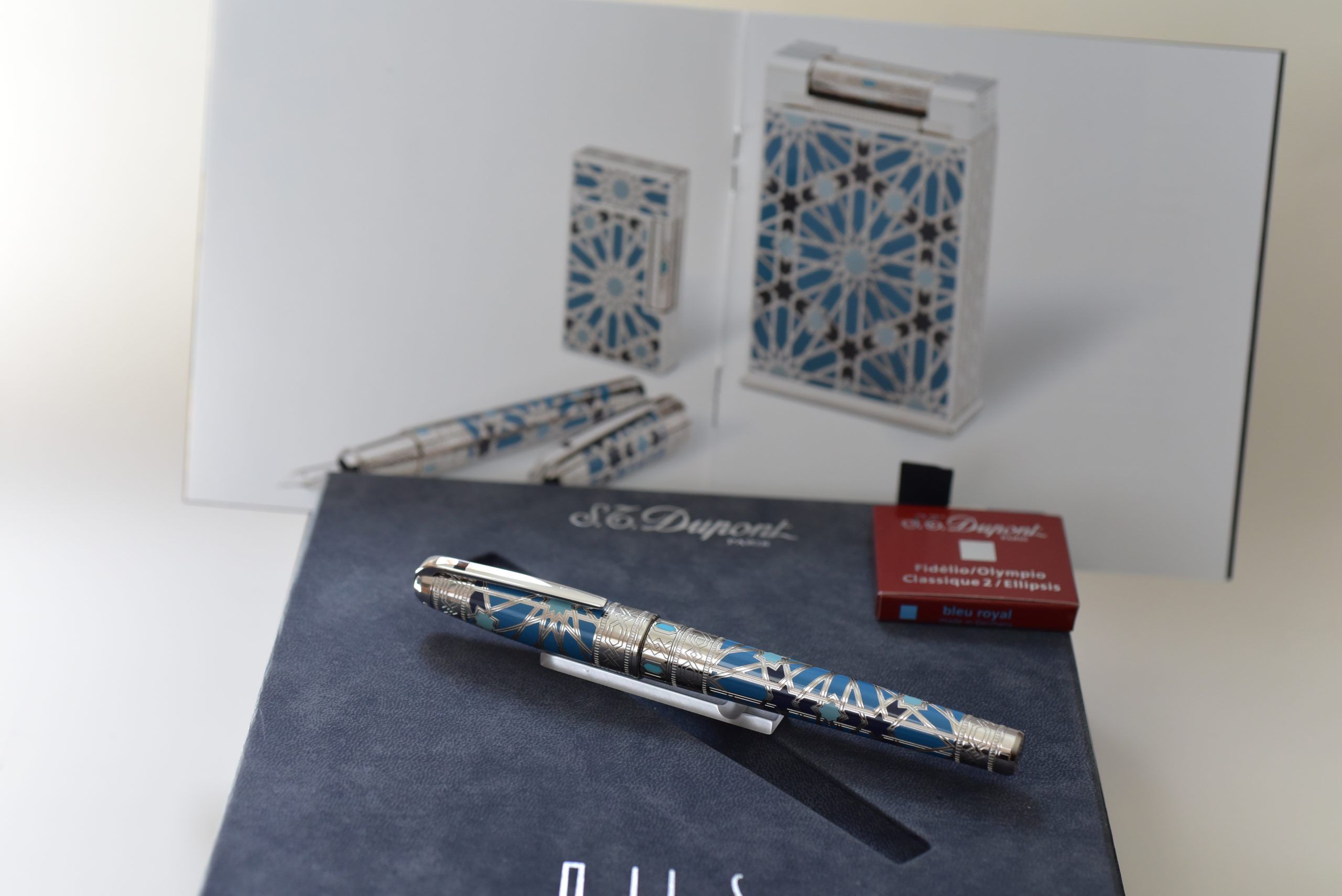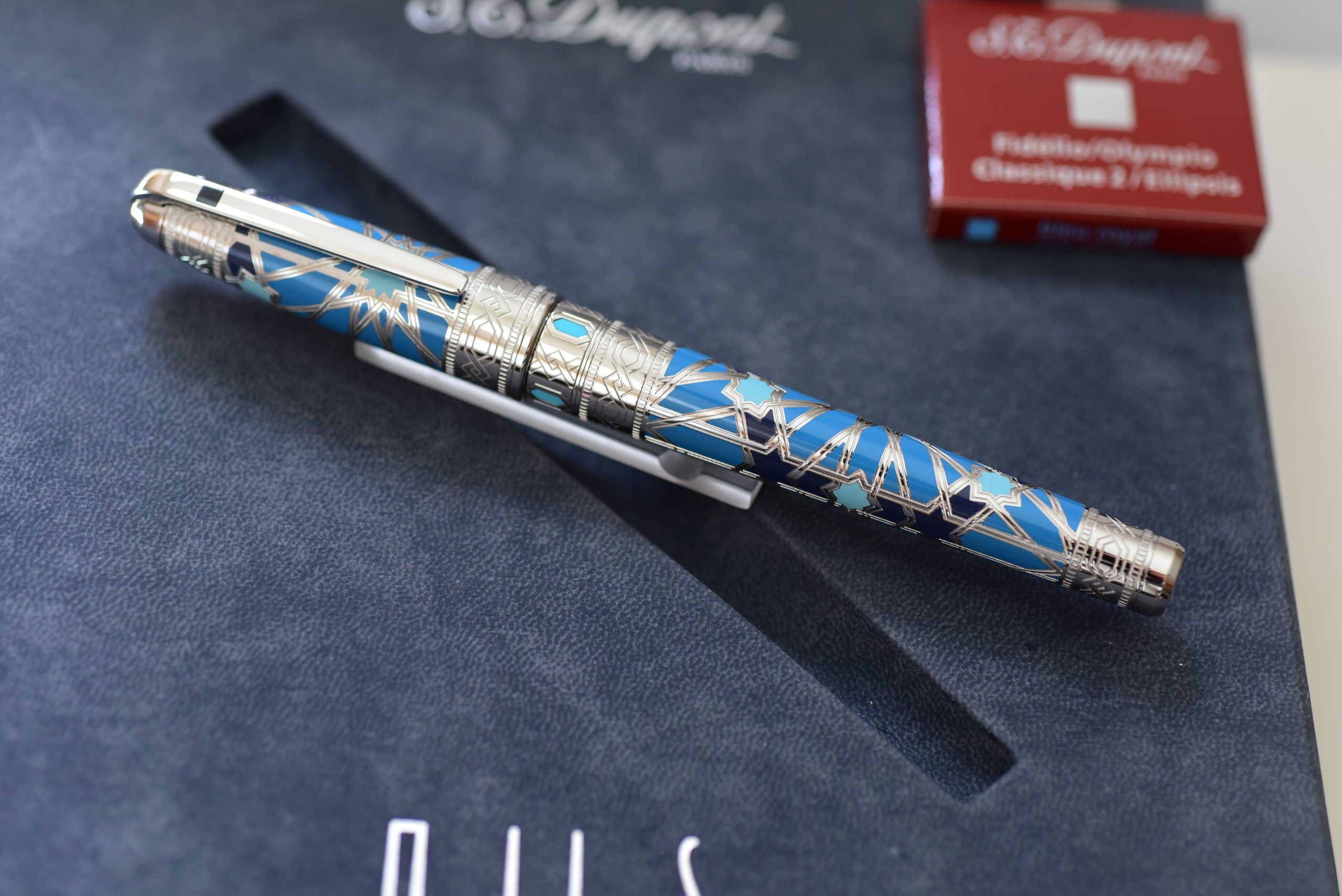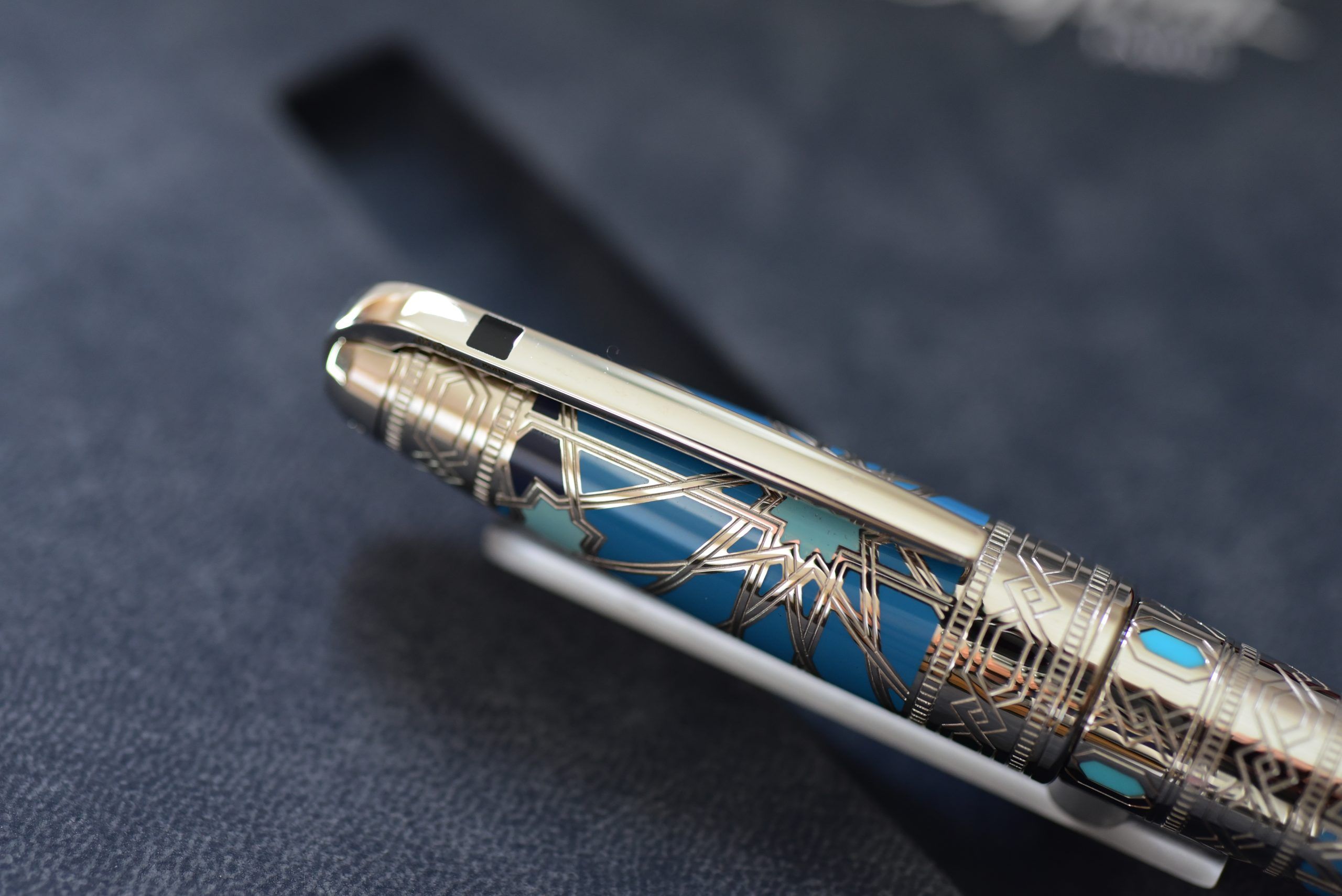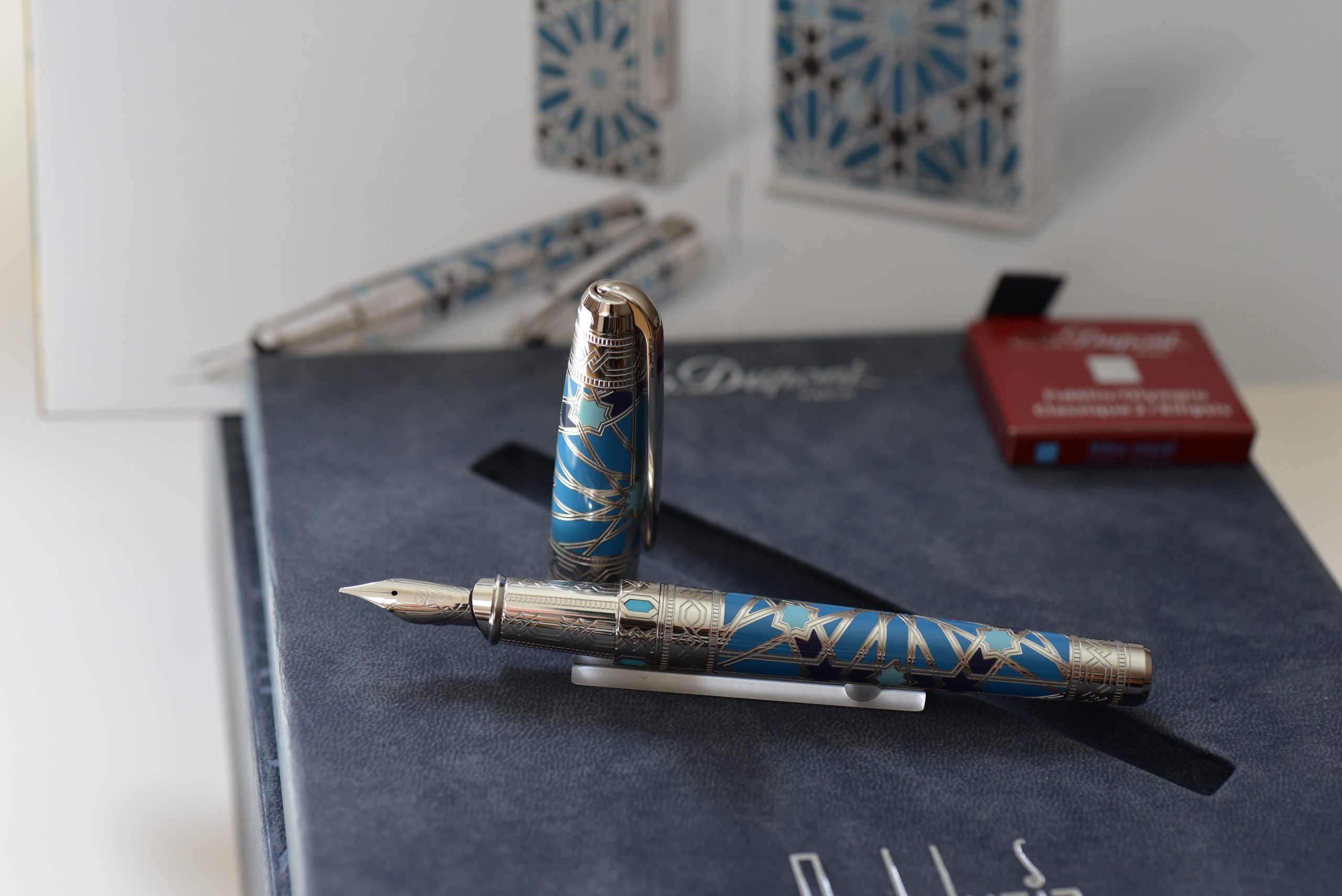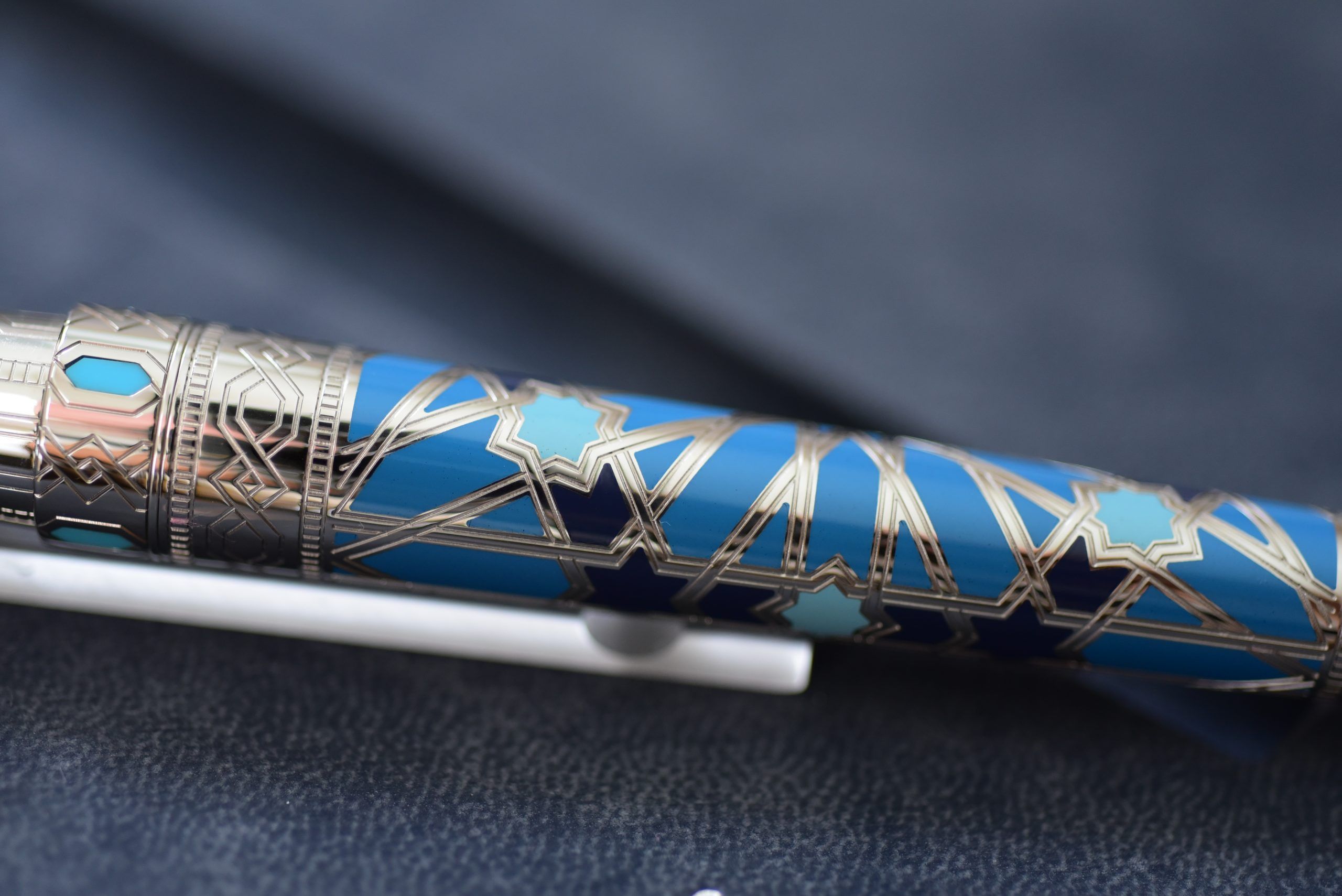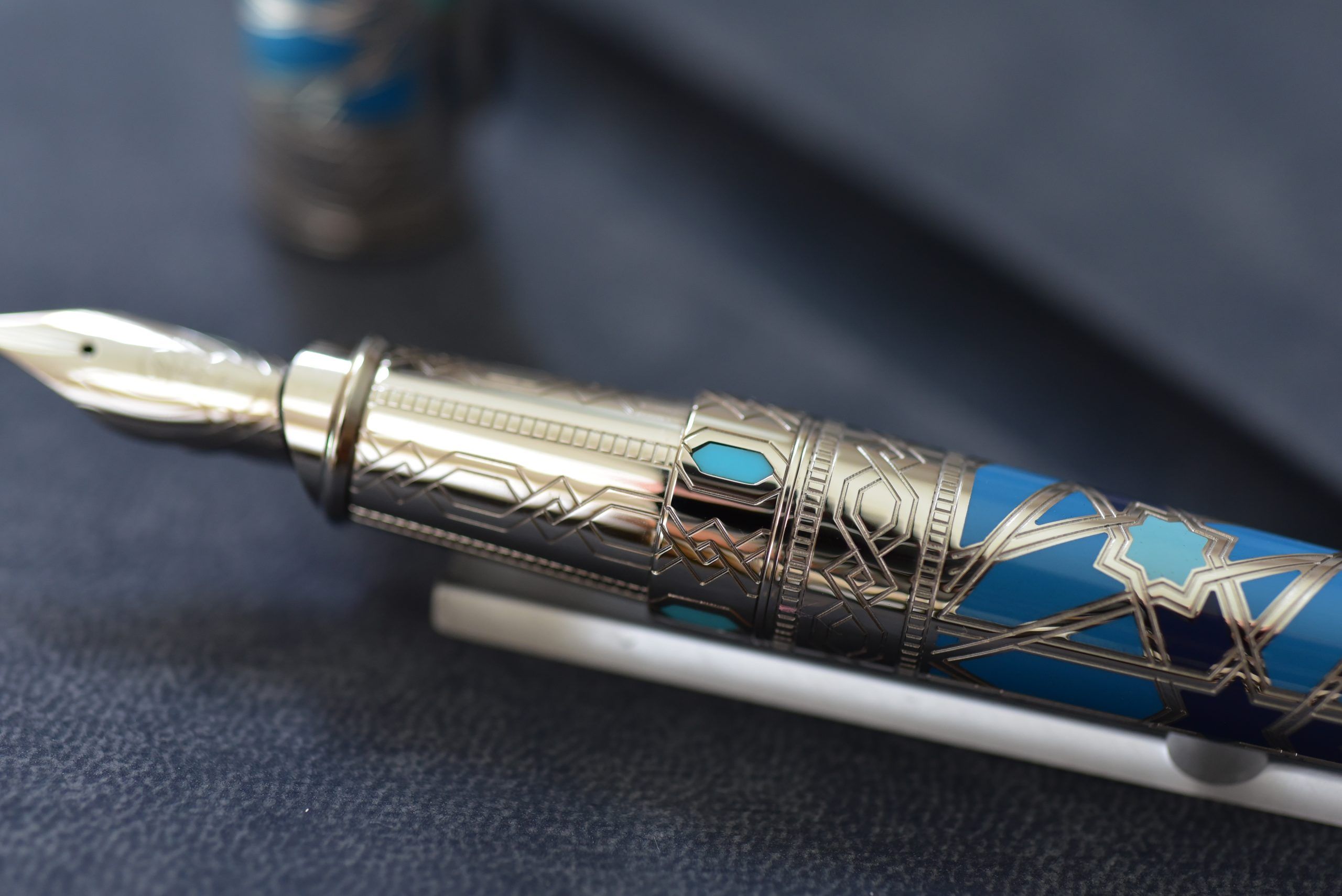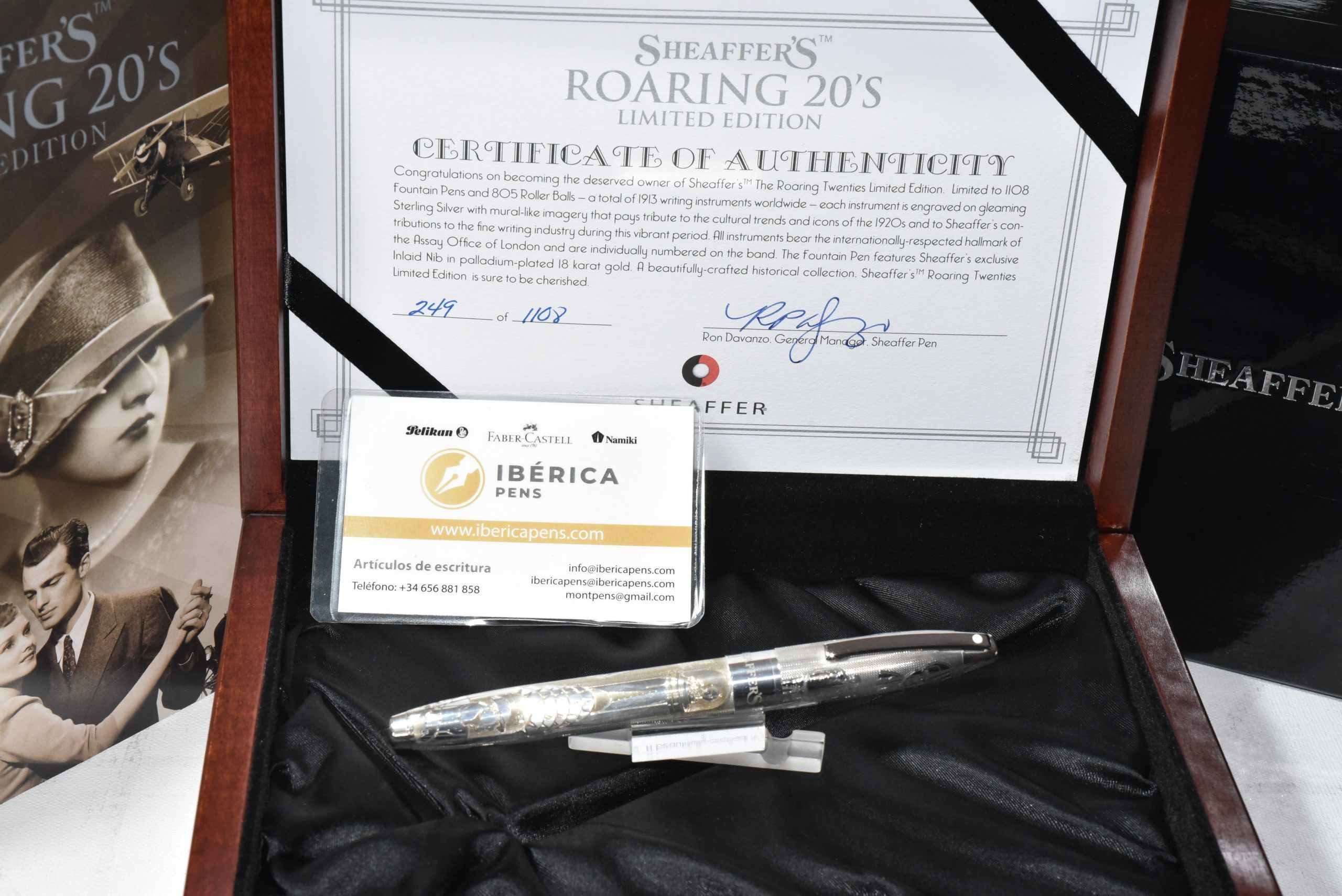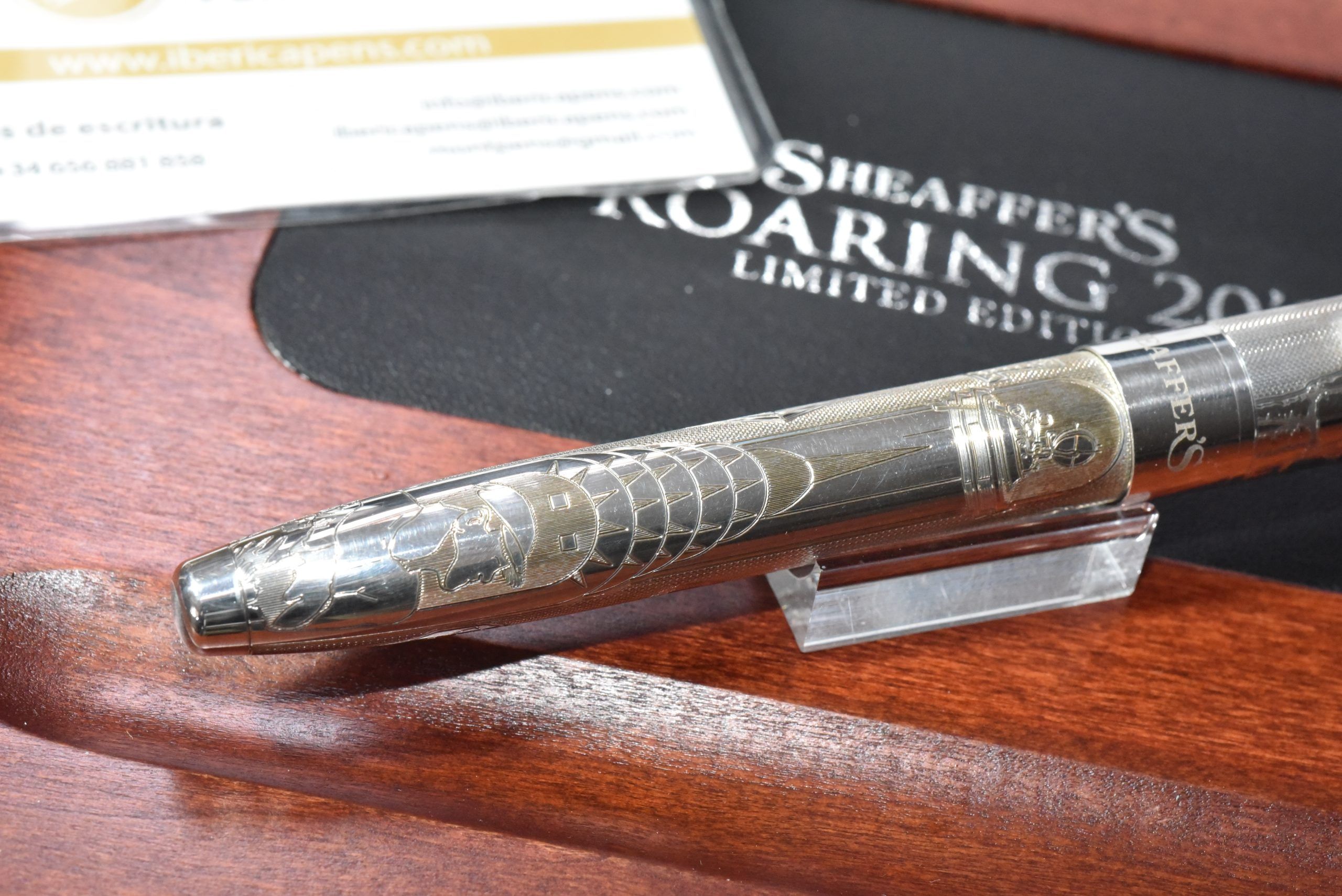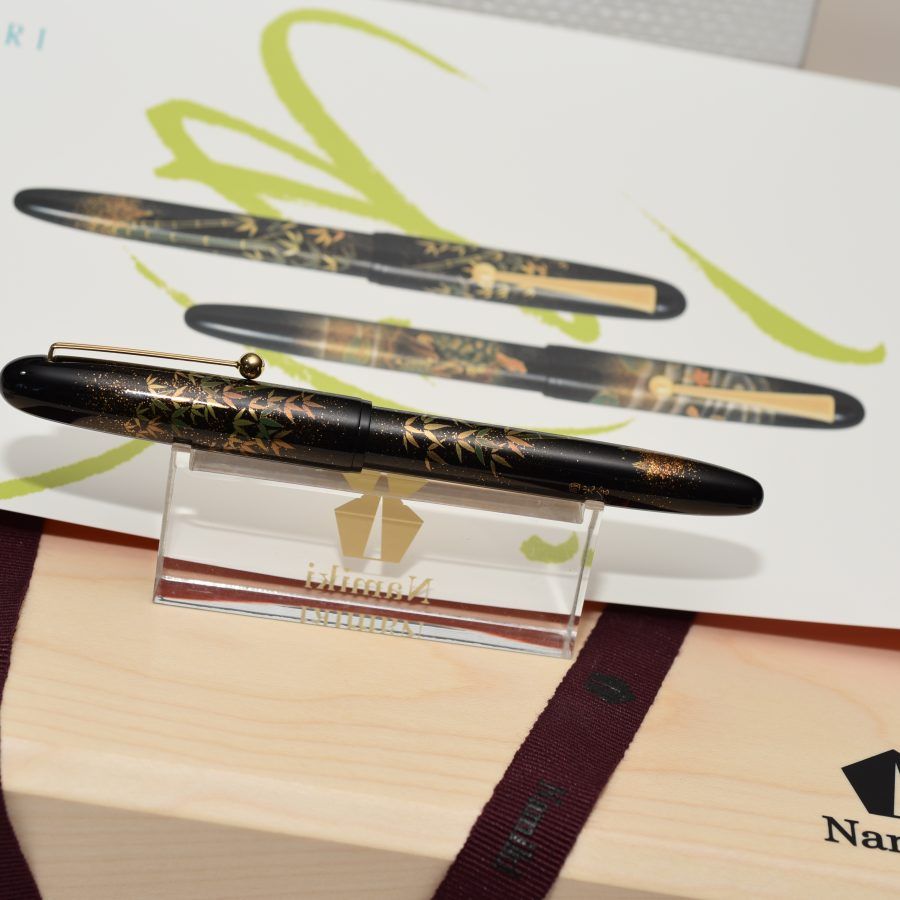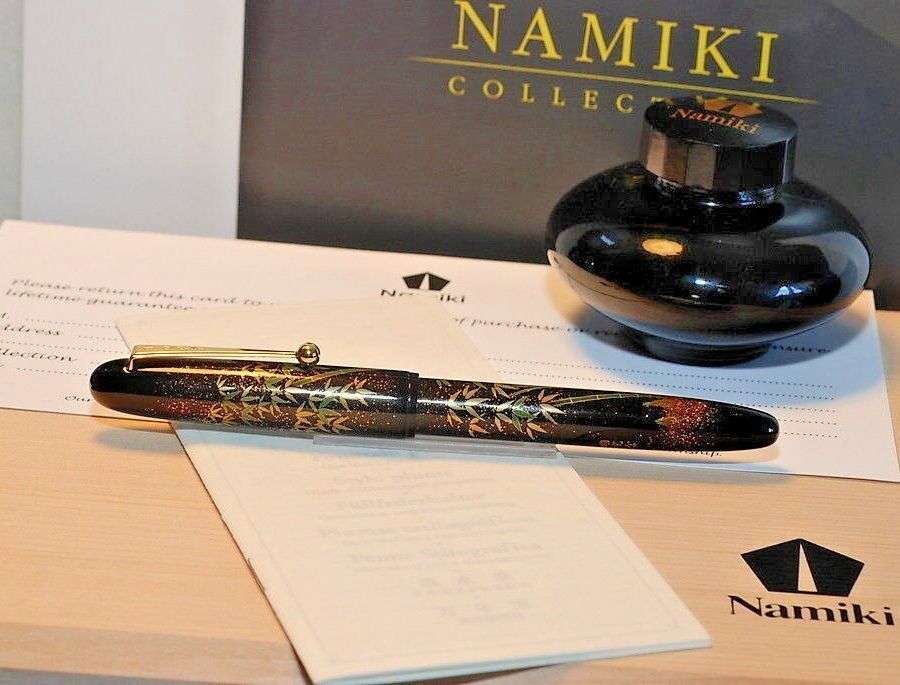Fountain pen Dupont Andalusia limited edition 2003
1.800,00€
New fountain pen. In perfect condition, has not been used or inked.
The box and the information book on the cover has a small silicone stain.
18-carat gold nib, size M.
edition number 1307/2500.
Taking inspiration from these brilliantly colored mosaics, S.T.Dupont has designed a collection of exceptional objects that combine platinum, Chinese lacquer and turquoise, a tribute to the brand’s craftsmanship.
The square motifs that decorate these precious items feature guilloché work in an interlocking geometric style. The rich cameo of blues, using three different colors of Chinese lacquer and inlaid turquoise, evokes the colors of the jeweled glaze on the tiles.
Out of stock
Description
Views: 116
Under seven centuries of Muslim rule, Andalusia became a cultural and economic focal point, accompanied by a flourishing architecture. Masterpieces built during this period include La Mezquita in Cordoba, La Giralda in Seville and the Alhambra in Grenada. The Moors introduced the art of making azulejos, or tiles, leaving us a legacy of magnificent mosaics with complex geometric designs. These ceramic tiles are decorated in shades of blue, green, black, white and ochre.
The southern Spanish region of Andalusia is extremely rich in history, due to the succession of different civilisations that thrived there for thousands of years. After the arrival of the Romans in 216 B.C. and their 700-year stay, the Vandals conquered the region in the 5th century. They called it Vandalitia, from which the name Andalusia originated. The Visigoths then established their kingdom in the area until the Moors displaced them in 711. The Catholic kings of Spain began their battle against the Moorish conquerors in 1212, finally defeating them in 1492.
Drawing its inspiration from these brightly coloured mosaics, S.T.Dupont has designed a collection of exceptional objects combining platinum, Chinese lacquer and turquoise, a tribute to the brand’s craftsmanship.
The square motifs decorating these precious articles feature intertwined geometric-style guilloche work. The rich cameo of blues, using three different colours of Chinese lacquer and inlaid turquoise, evokes the jewelled enamel colours of azulejos.
This exceptional limited edition is made up of two pocket lighters, a Ligne 2 and a small Ligne 2, numbered from 1 to 3,000, a table lighter numbered from 1 to 300, and an Olympio fountain pen and ballpoint numbered from 1 to 2,500.
AlcázarSanta Cruz


 Español
Español 